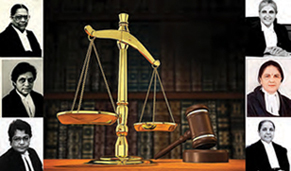
CORPORATE CITIZEN CLAPS FOR THE 'NUMERO UNO' GLOBAL TEACHER WITH THE GOLDEN HEART
- RANJITSINH DISALE

The 32 year old Zilla Parishad Primary School teacher from Paritewadi, in Solapur district of Maharashtra, made history as he won the $1 million (750,000 Pounds) annual Global Teacher Prize 2020. Disale was praised by the organizer – Varkey Foundation and competition partner UNESCO for promoting education for disadvantaged girls by introducing a quick-response (QR) coded textbook revolution in India. The resident of a drought-prone village, he stole many a hearts when he shared 50% of the prize money with the top 10 runner up in the competition. The split in prize money translates to over 40,000 Pounds each of the top 10 runner up amongst participating countries - Brazil, Italy, South Korea, Vietnam, Malaysia, Nigeria, South Africa, the UK and the US. Adjudged as the world's most exceptional teacher, amongst 12,000 teacher nominees, Disale prioritised girl's education, and thus saved them from the agony of customary teenage marriages. He focused on devising a curriculum in the students' primary language by redesigning all the textbooks of grades 1-4 in Kannada for better comprehension, along with unique QR codes that embedded audio poems, video lectures, stories and assignments. His efforts paid off when his school was awarded 'Best School' for the district in 2016, and 98% of students achieved their expected learning outcomes. Disale also provides online science lessons to pupils in 83 countries while also running international projects building connections between young people in conflict zones. He has also been recognised by Satya Nadella, CEO Microsoft in his book 'Hit Refresh'. A recipient of the Central Governments' 2016 Innovative Researcher of the Year, and the National Innovation Foundation's Innovator of the Year award 2018; he has also authored more than 500 newspaper articles and blogs, as well as participated in television discussions on educational topics. For someone who left his engineering course midway to cope with bullying and ragging, has surely become the 'change' that others want to see.
CORPORATE CITIZEN SLAPS THE GLARING GENDER DEFICIT WITHIN INDIA'S JUDICIARY SYSTEM; OFTEN TRIVIALISING JUSTICE METED OUT TO WOMEN


If Ruth Bader Ginsburg, the late American Supreme Court Justice is symbolic to women in judiciary, India has fallen short as women comprise a mere 7.2% of all the judges in the Supreme Court (SC) and the high courts as per available data. A case reflects when nine women lawyers had to approach the Supreme Court (SC) against a Madhya Pradesh High Court order directing an accused of sexual assault to visit his victim and "allowing" her to tie a 'rakhi' on him as a pre-condition to bailing him out! This unruffled the government's apathy in improving women's representation within the judiciary and debated on whether reservation would help boost their strength. And rightly so, the Attorney General of India K.K. Venugopal, has now called upon the SC to suggest ways to gender-sensitise judges while stating that there has never been a woman Chief Justice in the seven decades of its existence. "This court (SC) has only two women judges as against a sanctioned strength of 34 judges. There are only 80 women judges out of the sanctioned strength of 1,113 judges in the High Courts and the Supreme Court," he said. While the appointments of the High Court judges are made under Articles 217 and 224 of the Constitution, "These Articles do not provide for reservation for any caste or class of person including women. The Government has, however, been requesting the Chief Justices of the High Courts that while sending proposals for appointment of Judges, due consideration be given to suitable candidates belonging to Scheduled Castes, Scheduled Tribes, Other Backward Classes, Minorities and Women," said Venugopal. While 11 women judges are represented in the Punjab and Haryana High Court, followed by nine in the Madras High Court and eight each in the high courts of Delhi and Mumbai; the high courts of Patna, Manipur, Meghalaya, Telangana, Tripura and Uttarakhand do not have any woman judge at all! It's high time to create a judicial legacy for women – lest the blind-folded Astraea the goddess of justice, renders a society 'blind' to all forms of Justice!